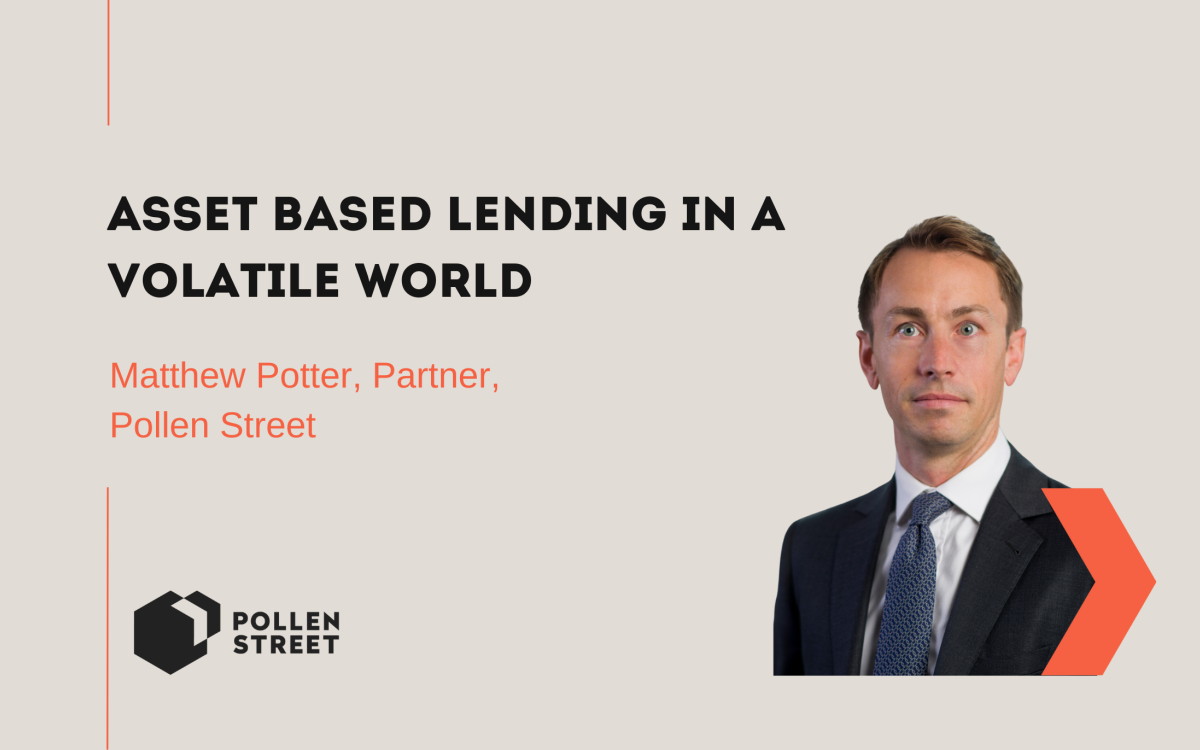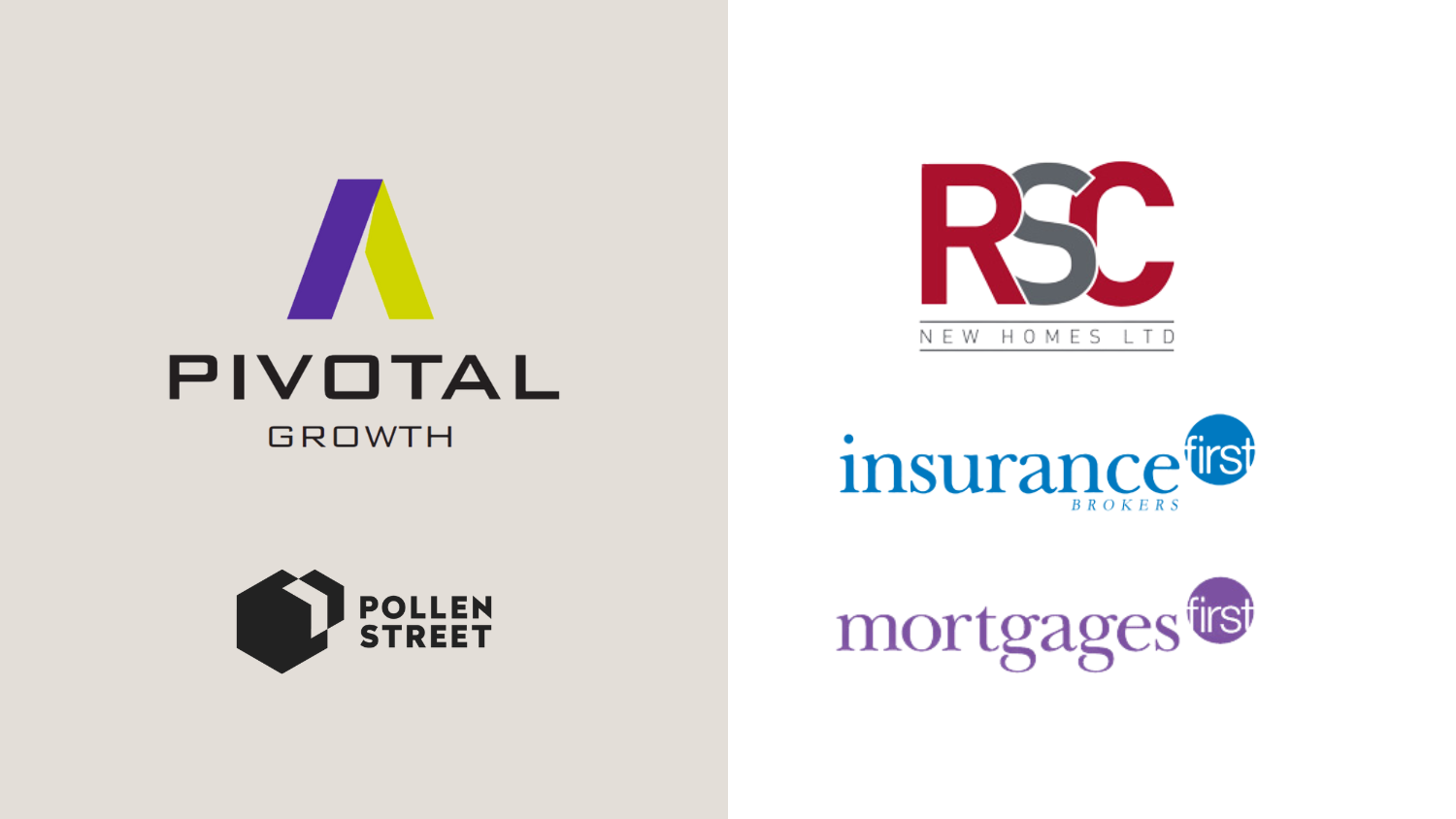
Asset based lending in a volatile world
Matthew Potter, Partner at Pollen Street, on the origins of our Private Credit strategy and considered approach to asset based lending
In an uncertain world, asset-based lending can emerge as a dependable strategy for attractive returns having demonstrated its resilience through various economic cycles.
Heading into 2023, the economic outlook across geographies looks set to remain challenging with macro-economic headwinds building, from rising inflation and interest rates to persistent supply chain issues and challenged labour markets. The sentiment from UK business leaders reflects this with only 34% of CEOs predicting strong or very strong growth over the coming 12 months, down 15% from June of this year.[1]
The mood music across the economy has already had a consequential impact on money markets, for everyday consumers interest rate rises have seen mortgage approvals fall to their lowest level since the onset of the pandemic[2], and lending to SMEs is expected to tighten even while the unmet finance needs of SMEs globally represents roughly 150% of the lending currently available for these businesses.[3]
Faced with this economic environment and supply restrictions, borrowers will increasingly turn to non-bank lenders to support them with their growth. Firms like Pollen Street, offering senior secured, asset-based lending to these high quality non-bank lenders, enable them to grow their lending businesses and fulfil the funding gap. This funding gap is only set to grow in the current climate and represents an expanding market for us to target, but with the confidence and track record of having delivered through challenging economic cycles.
Planning for the worst eventualities
Pollen Street was founded following the global financial crisis, identifying the structural changes that could form the foundation for sustainable growth. In credit this combined the identification of opportunities to fill a funding gap that was emerging but also a very considered approach, built to withstand extreme stresses in the economic environment. Pollen Street has developed a compelling strategy in senior secured lending primarily to non-bank lenders, technology companies and other companies with diverse portfolio of assets. In the last six years, we have invested more than £3.0bn across 100 deals.
When making decisions about lending, we don’t judge based on current market conditions, rather assessing on the basis of a very stressed macro-environment. This model, with modest loan to value ratios (LTVs) and subordinated cash equity from borrowers combined with comprehensive covenants gives certainty that the borrowers and underlying assets we have secured our lending against will generate sufficient cash to fully repay our loan plus interest even through the toughest conditions, without the refinancing risk typically associated with corporate lending.
The nature of our lending also means that we’re protected by the diversification of the underlying assets we lend against. For example, our senior facility to IWOCA, a leading SME lender, is secured on more than 6,500 individual SME loans making repayments monthly; or our senior facility to ONTO, Europe’s largest electric car subscription provider, is secured on over 4,500 electric cars and associated monthly customer payments. This diversification means that cashflows are stable with low volatility even in a more uncertain environment where credit defaults are predicted to rise.
Structuring for protection
The terms of our relationship with borrowers are also critical to ensuring resilience. At Pollen Street the comprehensive covenants that we negotiate with our credit partners are integral to our strategy and ensure that we have the right to step in early if there are signs of underperformance. Covenant packages cover not only borrower financial performance but also asset performance and diversification with levels set significantly inside underwriting stress tests.
In addition the terms of our facilities mean that we are only lending against performing assets and therefore as any underperformance emerges our facilities automatically de-gear and reduce LTV as borrowers are required to increase their equity subordination to finance those underperforming assets. Added to that automatic de-gearing, we retain senior ranking over both the asset and the cash of the borrower, which means we can control the flow of loans in and out of the business if a critical moment emerged. The nature of our lending makes this eventuality unlikely but the model we have created at Pollen Street provides confidence in the resilience — and is a first principle of engagement from our highly experienced team.
Ultimately we have designed our approach over years of experience in the industry to tap into a compelling opportunity while maintaining a margin of safety through different economic cycles.
Seizing emerging opportunities
While the tightening market results in larger lenders becoming more risk averse, there are increasing opportunities for lenders like Pollen Street, where our expert team is able to source and assess a large number of opportunities. In particular the mid-market deal size where we operate has significant whitespace as this sits below the appetite of the larger banks, public markets and larger asset managers.
We believe the businesses that will do well through this economic environment are those with a great foundation and product that manage to secure financing for investing and growing their business, which in turn will help them win market share. As a sector specialist we have built our reputation in the market which means we’re increasingly a go to player for this type of financing.
In the next five years, structural changes will drive the asset-based finance market, with Europe expected to increase 100% to £1 trillion and the US by 70% to £3 trillion.
The economic headwinds will need to be constantly assessed but that’s an approach that we have always undertaken, and what gives us confidence that our approach to asset-based lending will continue to steer the course.
[1] Fall 2022 Fortune/Deloitte CEO Survey |Deloitte Chief Executive Program.
[2] UK mortgage approvals hit lowest since June 2020 | Reuters
[3] Report on Small and Medium Enterprises (SMEs) Finance | The World Bank

